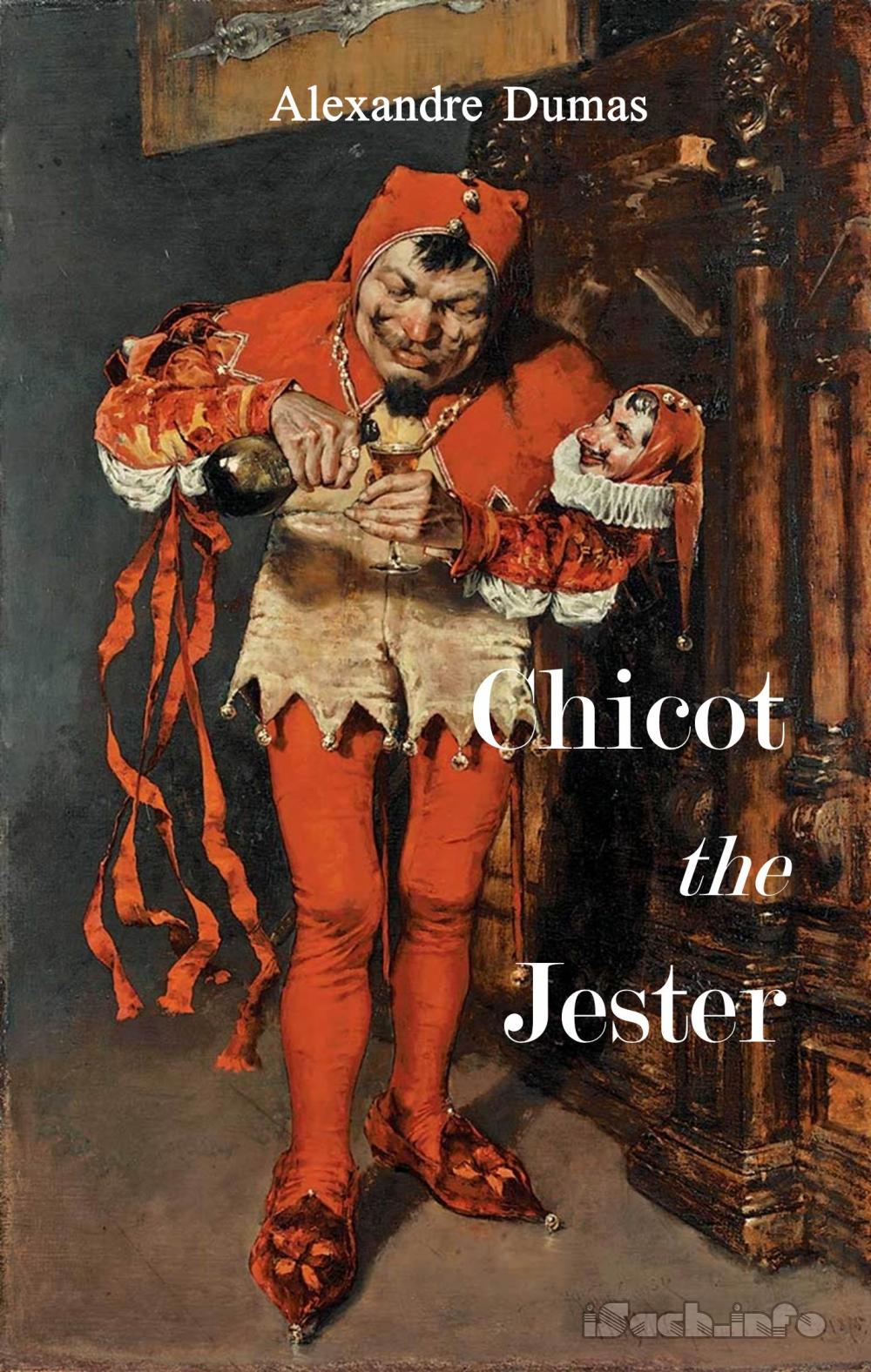Chapter 42: The Prince And The Friend
W
e may remember that the Duc de Guise had invited the Duc d'Anjou to meet him in the streets of Paris that evening. However, he determined not to go out of his palace unless he was well accompanied; therefore the duke went to seek his sword, which was Bussy d'Amboise. For the duke to make up his mind to this step he must have been very much afraid; for since his deception with regard to M. de Monsoreau he had not seen Bussy, and stood in great dread of him. Bussy, like all fine natures, felt sorrow more vividly than pleasure; for it is rare that a man intrepid in danger, cold and calm in the face of fire and sword, does not give way to grief more easily than a coward. Those from whom a woman can draw tears most easily are those most to be feared by other men. Bussy had seen Diana received at court as Comtesse de Monsoreau, and as such admitted by the queen into the circle of her maids of honor; he had seen a thousand curious eyes fixed on her unrivaled beauty. During the whole evening he had fastened his ardent gaze on her, who never raised her eyes to him, and he, unjust, like every man in love, never thought how she must have been suffering from not daring to meet his sympathizing glance."Oh," said he to himself, seeing that he waited uselessly for a look, "women have skill and audacity only when they want to deceive a guardian, a husband, or a mother; they are awkward and cowardly when they have simply a debt of gratitude to pay, they fear so much to seem to love—they attach so exaggerated a value to their least favor, that they do not mind breaking their lover's heart, if such be their humor. Diana might have said to me frankly, 'I thank you for what you have done for me, but I do not love you.' The blow would have killed or cured me. But no; she prefers letting me love her hopelessly; but she has gained nothing by it, for I no longer love her, I despise her."
And he went away with rage in his heart.
"I am mad," thought he, "to torment myself about a person who disdains me. But why does she disdain me, or for whom? Not, surely, for that long, livid-looking skeleton, who, always by her side, covers her incessantly with his jealous glances. If I wished it, in a quarter of an hour I could hold him mute and cold under my knee with ten inches of steel in his heart, and if I cannot be loved, I could at least be terrible and hated. Oh, her hatred! Rather than her indifference. Yes, but to act thus would be to do what a Quelus or a Maugiron would do if they knew how to love. Better to resemble that hero of Plutarch whom I so much admired, the young Antiochus, dying of love and never avowing it, nor uttering a complaint. Am I not called the brave Bussy?"
He went home, and threw himself on a chair. How long he remained there he did not know when a man approached him.
"M. le Comte," said he, "you are in a fever."
"Ah, is it you, Rémy?"
"Yes, count. Go to bed,"
Bussy obeyed, and all the next day Rémy watched by him, with refreshing drinks for his body and kind words for his mind. But on the day after Bussy missed him. "Poor lad!" thought he, "he was tired and wanted air; and then doubtless Gertrude expected him; she is but a femme de chambre, but she loves, and a femme de chambre who loves is better than a queen who does not."
The day passed, and Rémy did not return. Bussy was angry and impatient. "Oh!" cried he, "I, who still believed in gratitude and friendship, will henceforth believe in nothing." Towards evening he heard voices in his ante-chamber, and a servant entered, saying, "It is Monseigneur the Duc d'Anjou."
"Let him enter," said Bussy, frowning.
The duke, on entering the room, which was without lights, said, "It is too dark here, Bussy."
Bussy did not answer; disgust closed his mouth. "Are you really ill," said the duke, "that you do not answer?"
"I am very ill."
"Then that is why I have not seen you for two days?"
"Yes, monseigneur."
The prince, piqued at these short answers, began to examine the room.
"You seem to me well lodged, Bussy," said he.
Bussy did not reply.
"Bussy must be very ill," said the duke to an attendant who stood by, "why was not Miron called? The king's doctor is not too good for Bussy." When the servant was gone, "Are you in grief, Bussy?" said the duke.
"I do not know."
The duke approached, becoming more and more gracious as he was rebuffed. "Come, speak frankly, Bussy," said he.
"What am I to say, monseigneur?"
"You are angry with me?"
"I! for what? besides, it is no use to be angry with princes." The duke was silent.
"But," said Bussy, "we are losing time in preambles; to the point, monseigneur. You have need of me, I suppose?"
"Ah, M. de Bussy!"
"Yes, doubtless; do you think I believe that you come here through friendship; you, who love no one?"
"Oh, Bussy, to say such things to me!"
"Well, be quick, monseigneur, what do you want? When one serves a prince, and he dissimulates to the extent of calling you his friend, one must pay for the dissimulation by being ready to sacrifice everything, even life, if necessary."
The duke colored, but it was too dark to see it. "I wanted nothing of you, Bussy, and you deceive yourself in thinking my visit interested. I desire only, seeing the fine evening, and that all Paris is out to sign the League, that you should accompany me a little about the streets."
Bussy looked at him. "Have you not Aurilly to go with you?"
"A lute-player!"
"Ah, monseigneur, you do not mention all his qualities; I believed that he fulfilled other functions for you. Besides, you have a dozen other gentlemen; I hear them in the ante-chamber."
At this moment the door opened. "Who is there?" said the duke, haughtily. "Who enters unannounced where I am?"
"I, Rémy," replied the young man, without any embarrassment.
"Who is Rémy?"
"The doctor, monseigneur," said the young man.
"And my friend," said Bussy. "You heard what monseigneur asks?" continued he, turning to Rémy.
"Yes, that you should accompany him; but——"
"But what?" said the duke.
"But you cannot do it!"
"And why so?" cried the duke.
"Because it is too cold out of doors."
"Too cold!" cried the duke, surprised that any one should oppose him.
"Yes, too cold. Therefore I, who answer for M. Bussy's life to himself and to his friends, must forbid him to go out." And he pressed Bussy's hand in a significant manner.
"Very well," said the duke, "if the risk be so great, he must stay." And he turned angrily to the door; but returning to the bed, he said, "Then you have decided not to come?"
"Monseigneur, you hear that the doctor forbids me."
"You ought to see Miron, he is a great doctor."
"I prefer my friend."
"Then adieu."
"Adieu, monseigneur."
No sooner was the duke gone than Rémy said, "Now, monsieur, get up at once, if you please."
"What for?"
"To come out with me. This room is too warm."
"You said just now to the duke that it was too cold outside."
"The temperature has changed since."
"So that——" said Bussy, with curiosity.
"So that now I am convinced that the air will do you good."
"I do not understand."
"Do you understand the medicines I give you? Yet you take them. Come, get up; a walk with M. d'Anjou is dangerous, with me it is healthy. Have you lost confidence in me? If so, send me away."
"Well, as you wish it." And he rose, pale and trembling.
"An interesting paleness," said Rémy.
"But where are we going?"
"To a place where I have analyzed the air to-day."
"And this air?"
"Is sovereign for your complaint, monseigneur."
Bussy dressed, and they went out.



 ePub
ePub A4
A4